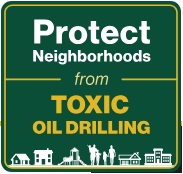Landmark Paper Underestimated Methane Leaks from Gas Production
August 6, 2015Forest Service Questions Pipeline Plan
August 19, 2015By EINPresswire.com, July 26, 2015
Download the full report as a pdf.
In one of the first studies of its kind, Joseph J. Mangano of the Radiation and Public Health Project found disturbing links between hydraulic fracturing (fracking) and health effects in children younger than five years old.
In the report “Health Hazards to Fetuses, Infants, and Young Children in Heavily-fracked Areas of Pennsylvania,” funded by the Pittsburg Foundation, Mangano explains that as a relatively new technology in the landscape of natural gas extraction, fracking hasn’t been extensively studied with regards to health impacts on nearby residents. His study compares morbidity and mortality rates for several age groups living in eight heavily-fracked counties in the state with the same data in the rest of Pennsylvania. Heavily-fracked counties included in the study were Bradford, Washington, Tioga, Susquehanna, Lycoming, Greene, Westmoreland, and Fayette.
Mangano found that heavily-fracked counties have 13.9% greater infant mortality, 23.6% greater perinatal mortality, 3.4% more low-weight births, 12.4% more premature births, and 35.1% more cancer in children ages zero to four.
According to Mangano, “[This] information is only a start in refining the discussion about fracking’s impact on humans. Other studies must be conducted, on this and other geographic areas, disease categories, and age groups. As these develop, it is crucial that information such as this is disseminated to citizens and public leaders, leading to more informed discussion that will make future public policies that best protect the public’s health.”



